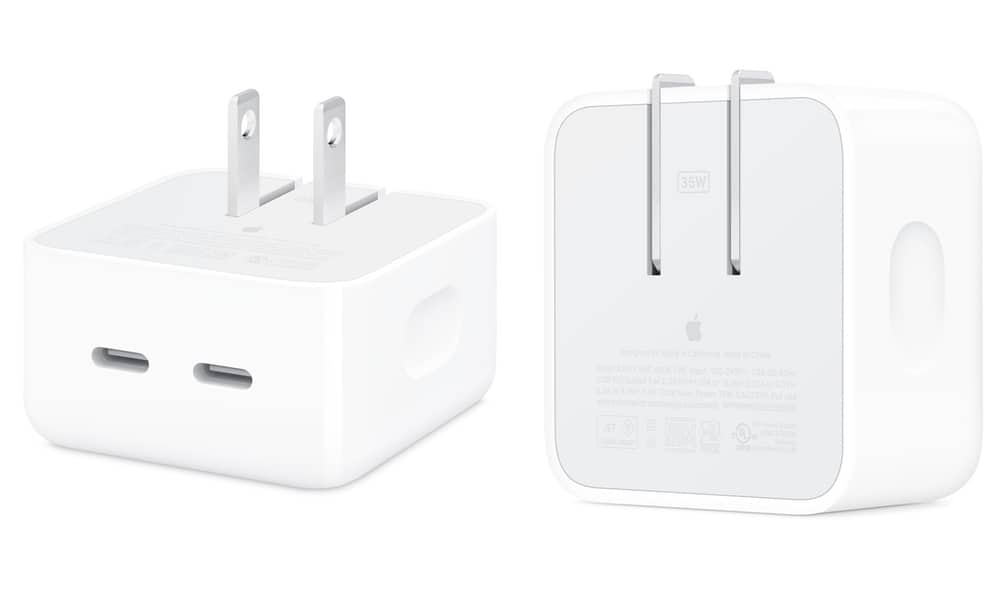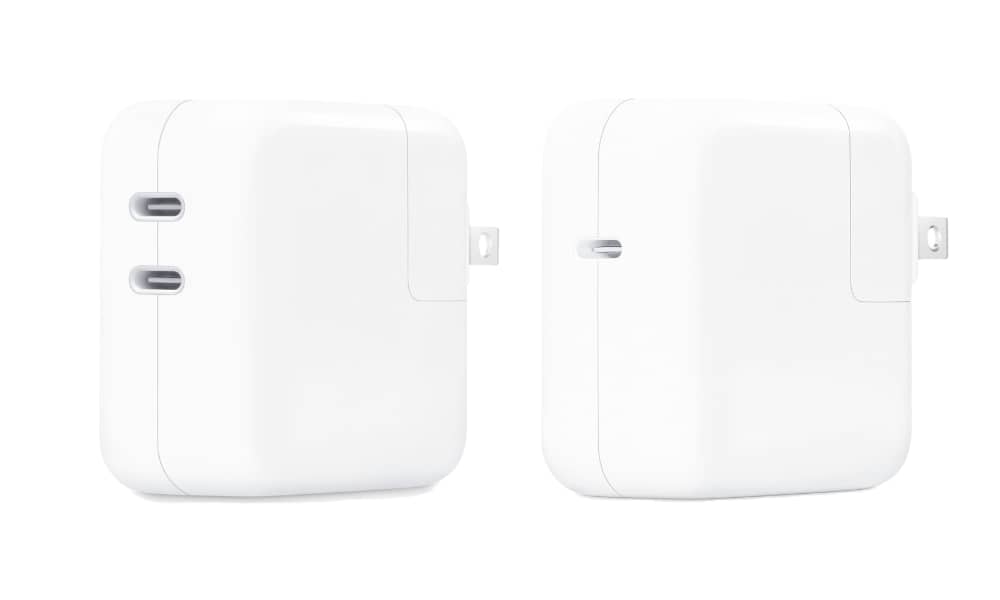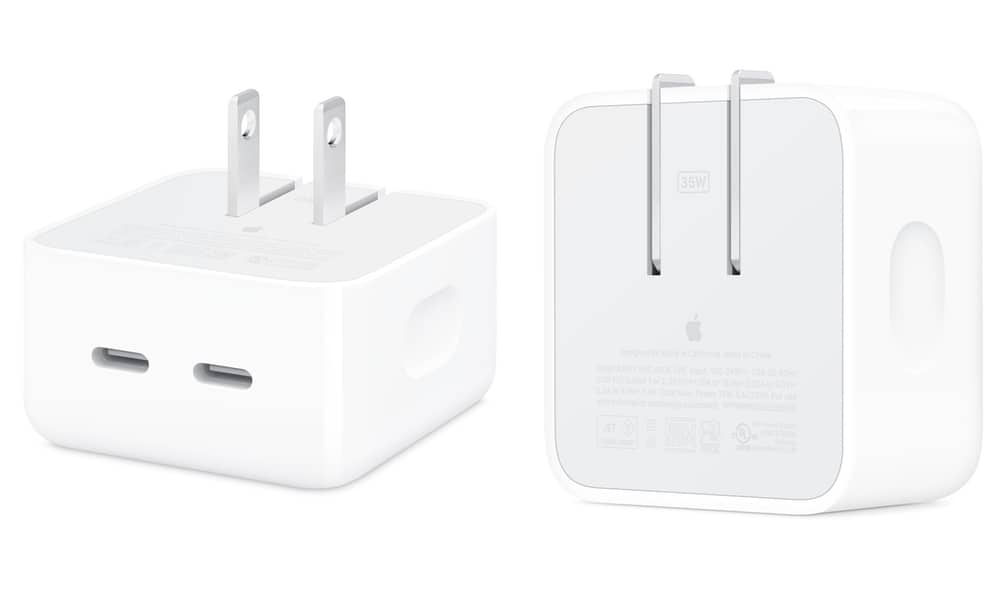Apple’s New Dual USB-C 35W Power Adapter Is Real?Here Are the Details
 Credit: Apple
Credit: Apple
Toggle Dark Mode
Earlier this year, reliable sources hinted that Apple had a dual-port USB-C charger in the works that would give users the ability to fast-charge more than one device at a time. It was poised to be the first-ever dual-port charger to come from Apple, and despite a false leak, it looks like these rumors were true — although not quite in the way we expected.
While many assumed it would be a standalone accessory, Apple surprised us yesterday when it snuck it in with the announcement of its new M2 MacBook Air.
That’s right; it turns out that this new Dual USB-C 35W adapter was actually designed for the MacBook Air. Of course, you’ll be able to purchase it on its own, but anybody picking up some of the new MacBook Air models will get it in the box.
In some ways, we probably shouldn’t be that surprised. The M1 MacBook Air included a 30W single-port USB-C charger, so the new 35W charger is in the right range. However, since that didn’t leave much left over for charging anything else, we expected this would be targeted at iPhone and iPad users instead.
Nevertheless, Apple is bundling it with some M2 MacBook Air models, specifically the higher-end M2 with the 10-core GPU and 512GB storage; the entry-level M2 MacBook Air will still get the original single-port 30W USB-C power adapter. This implies that the higher-end MacBook Air may need the extra charging power, meaning you wouldn’t get optimal charging if you chose to use the other USB-C charging port simultaneously.
To be clear, that doesn’t mean you can’t use both ports at the same time; however, you’ll be sharing the 35 watts of power between both ports. This will likely be enough to keep your MacBook Air from losing power; you just won’t get the fastest possible charging speeds if you share that juice with another power-hungry device like an iPhone 13 Pro Max.
Technically speaking, you won’t get the best charging speeds from the included 35W USB-C adapter anyway; this year, Apple has added 67W fast-charging to the MacBook Air, which will get you back up to 50 percent in 30 minutes if you buy the higher-power adapter separately.
Two Versions
What’s also interesting is that Apple is selling the new Dual USB-C Port Power Adapter in two different configurations. Both are priced at $59, so they differ primarily in design.
The “standard” 35W Dual USB-C Port Power Adapter follows the iconic design of the rest of Apple’s MacBook power adapters. Were it not for the second USB-C port on the back, it would be tough to tell it apart from the 30W USB-C Power Adapter that comes with the M1 and 8-core M2 MacBook Air models.
Apple is also offering a second “compact” version, the 35W Dual USB-C Port Compact Power Adapter. This one is very similar to what some leaks shared, although it’s still easy to see the differences.
The so-called compact version only appears to be slightly smaller. However, it won’t protrude from the wall nearly as much as Apple’s more traditional design since the prongs are on the side rather than the edge. Apple notes that “the compact size and folding prongs make it easy to pack and store.”
However, the standard 35W Dual USB-C Port Power Adapter has another important distinction: It’s compatible with Apple’s World Travel Adapter Kit since the North American plug can be pulled off and replaced with the appropriate version for whatever country you find yourself in.
As usual, cables are sold separately, The MacBook Air naturally includes a USB-C to MagSafe cable, but you’ll need to supply your own if you want to use the second USB-C port.
Apple recommends both adapters for the MacBook Air but adds that they can also be used with the iPhone, iPad, Apple Watch, and AirPods. They’re still listed as “Coming Soon” on the Apple Store but will likely be available when the M2 MacBook Air ships next month.









